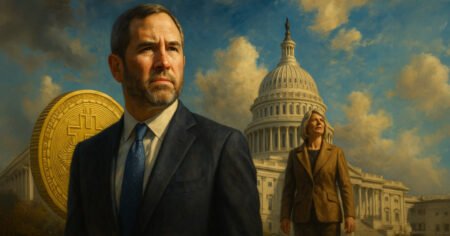Congressman Ritchie Torres has urged the CFTC to regulate election-related prediction markets rather than blocking them. He emphasized the importance of promoting responsible innovation and working with platforms like Kalshi and Polymarket to ensure that such markets are regulated and conducted transparently and securely within regulated markets. Torres warned that further legal challenges could harm both election integrity and consumer protection, allowing illegal platforms to flourish.
Polymarket has seen a significant decline in activity in recent days amid regulatory pressure and uncertainty over election betting. Daily active traders on the platform dropped by nearly 40% and daily trading volume fell dramatically following the CFTC’s proposal to limit certain event contracts, particularly those related to political outcomes. Despite these challenges, Polymarket has gained some mainstream recognition, with Bloomberg integrating the platform into its financial terminals, suggesting growing interest in decentralized prediction markets.
The debate over election prediction markets intensified when a federal court ruled in favor of Kalshi, allowing the platform to offer election-related contracts. The CFTC quickly filed an emergency motion to stay Kalshi’s election markets, citing concerns about potential manipulation and the undermining of public trust in the democratic process. Lawmakers like Congressman Ritchie Torres criticized the CFTC’s actions and urged the regulator to focus on regulating these markets to ensure transparency, consumer protection, and the integrity of elections.
In his letter to CFTC Chair Rostin Behnam, Congressman Ritchie Torres emphasized the agency’s mandate to promote responsible innovation and collaborate with regulated market participants. He called on the CFTC to work with platforms like Kalshi and Polymarket to ensure that election-related contracts are conducted transparently and securely within regulated markets. Torres warned that continued legal battles could push traders towards unregulated platforms, further jeopardizing election integrity and consumer protection.
With the regulatory pressure and uncertainty surrounding election betting, Polymarket has experienced a decline in activity, including a decrease in daily active traders and trading volume. Despite these challenges, the platform has garnered mainstream recognition, with Bloomberg integrating Polymarket into its financial terminals. This indicates a growing interest in decentralized prediction markets, even as regulators closely scrutinize the sector and impose restrictions on election-related contracts.
The intensifying debate over election prediction markets highlights the need for clear regulation and oversight to ensure transparency, consumer protection, and the integrity of elections. Congressman Ritchie Torres and other lawmakers have called on the CFTC to focus on collaborating with regulated platforms and regulating these markets rather than blocking them. As the regulatory landscape continues to evolve, it is essential for regulators, lawmakers, and market participants to work together to address concerns and promote responsible innovation in prediction markets.

















